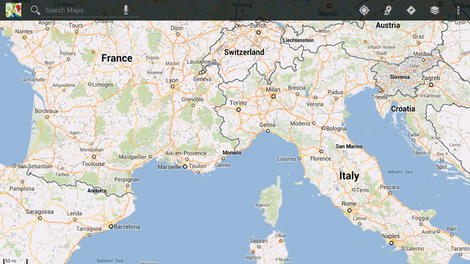Software : BLIP: BlackBerry pulls buggy Twitter update for BB10, tells users to downgrade |
- BLIP: BlackBerry pulls buggy Twitter update for BB10, tells users to downgrade
- Facebook 'dead and buried' to teens who don't want to be friends with parents
- Ex-Googler explains how Google Maps calculates your journey ETA
| BLIP: BlackBerry pulls buggy Twitter update for BB10, tells users to downgrade Posted:  BlackBerry is instructing users to ditch the latest version of its Twitter client and downgrade to the previous iteration, following a host of complaints from BB10 users. The beleaguered company has pulled the current, glitch-heavy app (version 10.2.2) from the BlackBerry World portal and says users should delete the app from their phone. BlackBerry has reinstated Twitter v10.2.1 within the app store and says users can access it by entering the device's settings and refreshing BlackBerry App World. The former version of the app should then appear and be available for download. Simple. A pain in the rear end, but simple nonetheless. More blips!Don't worry, you won't have to uninstall anything after reading these blips... |
| Facebook 'dead and buried' to teens who don't want to be friends with parents Posted:  Teenagers are ditching their Facebook accounts in droves, according to newly-published research into social networking habits across Europe. 16-18 year olds are 'embarrassed to be associated' with Facebook according to the Global Social Media Impact Study, which claims the influx of older parents and relatives are to blame. Instead of Facebook, youngsters are gravitating to the likes of Snapchat, WhatsApp, Twitter and Facebook-owned Instagram, where their parents are less likely to be monitoring their activity or asking them what time they're going to be home for tea. According to Daniel Miller, a professor at University College London and lead anthropologist on the research team, "Facebook is not just on the slide - it is basically dead and buried." Mum, you're embarrassing me!Miller reckons a friend request from a parent is the equivalent of mum or dad showing up at a house party and dragging a youth out by the ear. "What appears to be the most seminal moment in a young person's decision to leave Facebook was surely that dreaded day your mum sends you a friend request," he wrote. "It is nothing new that young people care about style and status in relation to their peers, and Facebook is simply not cool anymore." The youngsters are less bothered that rival services are less secure and often less functional than Facebook (we're looking at you Snapchat), according to the research. |
| Ex-Googler explains how Google Maps calculates your journey ETA Posted:  Google Maps' estimated journey times have always been a vital part of what makes the service such a useful travel tool, helping us decide when to leave and allowing us to notify friends of our ETA. Now one ex-employee has revealed how the company decides how long it'll take you to get from A to B. Posting on Quora, former Google engineer Richard Russell said a number of factors are in play, such as historical speed averages on roads, traffic data, and information it has gleaned from previous journeys. "Like in similar products, Google maps ETAs are based on a variety of things, depending on the data available in a particular area," he wrote. Historical and real time data"These things range from official speed limits and recommended speeds, likely speeds derived from road types, historical average speed data over certain time periods (sometimes just averages, sometimes at particular times of day), actual travel times from previous users, and real-time traffic information. "They mix data from whichever sources they have, and come up with the best prediction they can make. The companies who have access to the best usage data (ie those who are best able to compare their predictions against reality, which means those who have the most usage) are likely to end up with the best predictions in the medium to long term." So there you have it. Google takes every bit of knowledge it can possibly come up with, throws it all into a melting point and comes up with an estimated journey time. Doesn't sound too complex now, right? |
| You are subscribed to email updates from TechRadar: All latest Applications news feeds To stop receiving these emails, you may unsubscribe now. | Email delivery powered by Google |
| Google Inc., 20 West Kinzie, Chicago IL USA 60610 | |
No comments:
Post a Comment